
To my wife, Beverley
PROLOGUE
 I SAW THE BIRD lying in a pool of sunlight as soon as I came into the room. It was in the far corner over by the fireplace I built when I first came here a score and more years ago. I recognized its still form and felt immediate regret as I realized why its familiar song had been missing from my bedchamber that morning. The brightness of the pool of light in which it lay told me what had happened: the bird had flown in through the window and then, blinded in the sudden darkness of the room, had dashed itself against a wall and died.
I SAW THE BIRD lying in a pool of sunlight as soon as I came into the room. It was in the far corner over by the fireplace I built when I first came here a score and more years ago. I recognized its still form and felt immediate regret as I realized why its familiar song had been missing from my bedchamber that morning. The brightness of the pool of light in which it lay told me what had happened: the bird had flown in through the window and then, blinded in the sudden darkness of the room, had dashed itself against a wall and died.
It was a blackbird, a tiny, glossy creature whose only other color was its brilliant orange beak. As I bent over it and peered at the forlorn way one of its wings lay spread on the stone floor, the thought came to me that nothing about this little being gave any hint of the miraculous power and volume of pure song contained within its fragile frame. When this bird sang, men could hear it from miles away on quiet summer evenings. Its voice, its song, and its magical power transcended and confounded the physical smallness of the singer.
I crouched cautiously, aware of the brittleness of my aging knees, and picked the dead bird up, cradling it in my hand and folding its already stiffening wings, noting the way the tiny head lolled on its broken neck. So small it was, and yet such a great loss to me in my early-morning awakenings and to everyone else its song reached. A blackbirda merle, to the local Franksa voice of purity and immense beauty, silenced forever. And then, merely in the recalling of its Frankish name, another, heavier wave of grief swept over me without warning; connections and associations swarmed in my mind, and my eyes were all at once awash with tears. I drew myself erect and inhaled a great, deep breath to steady myself, reaching out to lean on the stone breast of the fireplace, and then I wiped my eyes with my sleeve and looked about me at this bare room that holds so many memories and uncompleted tasks.
We have no need of open indoor fires here in the warmth of southern Gaul, but when I first came to these parts many years ago, my mind was filled with memories of long, pleasant nights spent in another land far to the northwest, sprawled in comfortable chairs before a roaring fire set into a stone-built chimneyed hearth, and so I indulged myself and built such a hearth here, in my new home. Once I had built it, of course, reality asserted itself, and to my wifes gentle amusement the fire was seldom lit. But I would often sit for hours in front of the silent hearth in the long autumn evenings, gazing into the dried logs and dreaming of things gone, and as time passed the habit endured while the memory of warm firelight faded. Since my wife died, I have been the sole user of this room, and I have lit the fire four times, purely for the pleasure of gazing into the heart of flames and interpreting the pictures I imagined I saw there. Today would have been the fifth occasion, had I not found the bird.
Moments after I had picked up the small corpse, I found myself outside, scraping a shallow hole with my heel in the grass beneath the window, then kneeling to use my dagger to deepen the hole into a grave. I buried the blackbird there, refusing to ask myself why I should be doing such a thing, and then I returned directly here and dragged this heavy table to the window, after which I sat down to write for the first time in years. And here I am, writing about a dead songbird and the memories it brought back to me.
Ten years ago, a full year after the death of my beloved wife and prompted by an urging I could not deny, I made the saddest journey of my life, although at the start of it I thought nothing could surpass the sadness I had known throughout my later years. I laid aside my rich clothing and dressed myself as an ordinary, undistinguished man, then made my way, in a strong, tight boat that belonged to an old and honored friend, across the narrow seas to Britain.
I did not go alone. That would have been extreme folly for a man of my age, even though I refuse to consider myself old. Besides, those who love and care for me had quickly decided, upon hearing what I had in mind, that I must be mad to think to risk my life upon the seas and journey to a land notorious for its savage peoples and their alien ways. They thought at first to prevent me somehow from going at all, but then, seeing I was determined to go despite them, they insisted that I travel with an escort. So I selected the youngest of my three sons, Clovis, and nine of his closest friends and companions to accompany me. These were all young warriors, still unwed and approaching their prime, and armed with the finest weapons our armorers could makelong-bladed swords and axes of the finest tempered ironso that no one could have denied that they were the best protection I could have. And thus accompanied, I set out for Britain with the tolerance, if not the unstinted blessings, of my advisers.
My youthful escorts called themselves knights, claiming adherence to the Order established decades ago in Britain when I was their age, and I had long since become tolerantly inured to the images their fancies conjured in me. I no longer made any attempt to dissuade them from their error, for they paid my protestations no attention when I did, considering me an old and querulous man, worthy of honor and respect, perhaps, but a relic nonetheless of a generation whose time had passed, and hence no longer quite aware of the potency and immediacy of modern events, customs, and times. Despite my silence, however, and notwithstanding their own insistence upon believing otherwise, they were not knights. All their enthusiasm and all their dedication to the ideals they cherished was mere self-delusion, because they had never knelt before the King to undergo the Ceremony. And so I had come to tolerate both their delusions and their deference to me, aware that they sought no more than to honor me and my long-dead friends in their insistence upon cleaving to the form and rituals of what we had once called knightly conduct.
That said, however, I did not permit them to journey with me as knights. They traveled as I did, in plain, dull, homespun clothes that, while they did nothing to disguise the strength and bulk of the wearers, yet made them seem less visible than their normal rich and brightly colored clothing would have. I made it plain to each and to all of them that we were traveling into danger in a land that I had once known well but which had since degenerated into chaos and anarchy, peopled by savage hordes of invaders, and that sumptuous clothes and rich armor and trappings would invite unwelcome attention. We would not be making a triumphal progress, I warned them time and again. This journey was mine alone and it was one of contemplation, a pilgrimage. They would escort me, at their own behest, purely to keep me safe from harm in a strange land. If they chose not to dress themselves in drab colors and walk afoot, they were at liberty to remain at home in Gaul.
They brought their weapons with them, of course, but the armor that they wore was plain and oldsturdy, well-worn leather instead of metal, yet serviceable and strong. Our intention, and again I went to great lengths to make this very clear before we left our home, was to appear strong enough to defend ourselves wherever we went but not wealthy enough to attract predators. They grumbled and complained as I expected, but they soon recovered their good humor in the prospect of a great adventure, and we set out in early summer, as soon as the spring gales had blown themselves out.
Next page

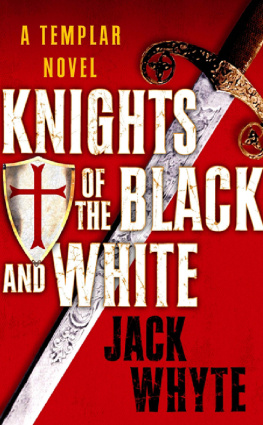
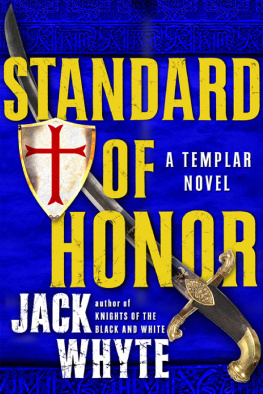

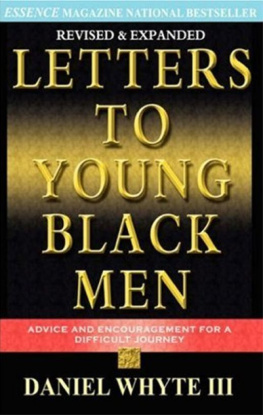
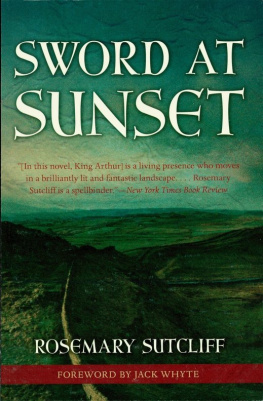
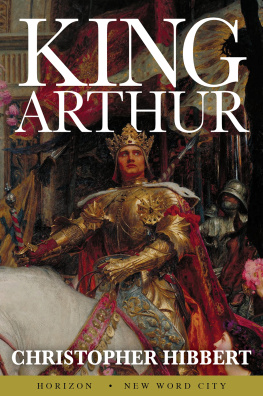
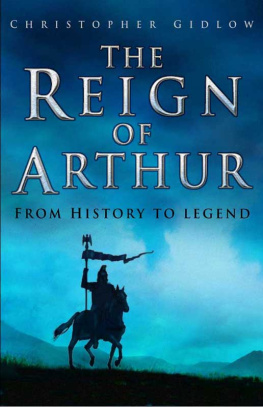


 I SAW THE BIRD lying in a pool of sunlight as soon as I came into the room. It was in the far corner over by the fireplace I built when I first came here a score and more years ago. I recognized its still form and felt immediate regret as I realized why its familiar song had been missing from my bedchamber that morning. The brightness of the pool of light in which it lay told me what had happened: the bird had flown in through the window and then, blinded in the sudden darkness of the room, had dashed itself against a wall and died.
I SAW THE BIRD lying in a pool of sunlight as soon as I came into the room. It was in the far corner over by the fireplace I built when I first came here a score and more years ago. I recognized its still form and felt immediate regret as I realized why its familiar song had been missing from my bedchamber that morning. The brightness of the pool of light in which it lay told me what had happened: the bird had flown in through the window and then, blinded in the sudden darkness of the room, had dashed itself against a wall and died.